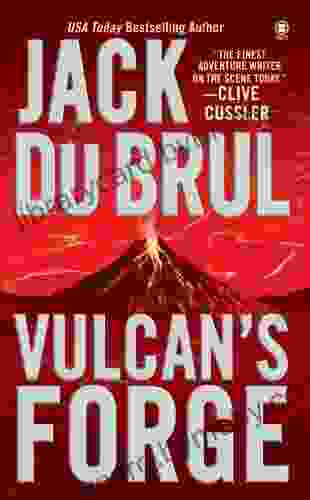Empower Your Qualitative Data Analysis: Discover the Modes of Thinking That Uncover Hidden Insights

Unveiling the Essence of Qualitative Data Analysis
In the realm of research and inquiry, qualitative data analysis stands as a transformative tool that grants researchers the power to delve deeply into the intricacies of human experience and uncover profound insights hidden within textual and observational data. Embarking on a qualitative data analysis journey requires a keen understanding of various modes of thinking that serve as the foundation for meaningful interpretation and knowledge construction.
Within the pages of "Modes of Thinking for Qualitative Data Analysis," a comprehensive guidebook for researchers, authors Dr. Miles and Dr. Huberman present a profound exploration of five distinct modes of thinking that empower analysts to approach qualitative data with multifaceted perspectives, maximizing their analytical capabilities. Join these renowned experts as they illuminate the essence of each mode, providing practical guidance and real-world examples to guide your qualitative data analysis endeavors.
4.9 out of 5
| Language | : | English |
| File size | : | 1512 KB |
| Text-to-Speech | : | Enabled |
| Enhanced typesetting | : | Enabled |
| Word Wise | : | Enabled |
| Print length | : | 150 pages |
| Screen Reader | : | Supported |
Exploring the Five Modes of Thinking
1. Systematically Describing Individual Cases
This mode of thinking invites researchers to engage in meticulous observation and detailed description of individual cases, events, or entities within their dataset. Through systematic documentation and careful analysis, researchers can uncover recurring patterns, salient features, and unique characteristics that define each unique case.
2. Developing Generalizations Across Cases
Moving beyond individual cases, this mode of thinking challenges researchers to identify commonalities, similarities, and recurring themes across multiple cases. By comparing and contrasting data from different sources, researchers can formulate broader generalizations, develop typologies, and establish connections that extend beyond individual experiences.
3. Exploring Relationships and Dynamics
This mode of thinking shifts the focus toward the intricate relationships and dynamic interactions that exist within the data. Researchers delve into the interplay between different elements, exploring how they influence, shape, and interact with one another. Through this lens, researchers can uncover hidden connections, causality, and complex patterns that provide a deeper understanding of the phenomenon under investigation.
4. Identifying Patterns of Change Across Time
This mode of thinking empowers researchers to examine how phenomena change and evolve over time. By tracing patterns of development, transformation, or decay, researchers can gain insights into dynamic processes, historical trajectories, and the evolution of individual cases or broader systems.
5. Evaluating Cases With a Particular Theory
This mode of thinking involves using a specific theoretical framework to guide the analysis and interpretation of data. Researchers align their findings with the tenets of the theory, testing its validity, refining its components, or challenging its assumptions. This approach provides a structured and rigorous framework for evaluating the data, generating new knowledge, and contributing to theoretical development.
Practical Applications and Real-World Examples
"Modes of Thinking for Qualitative Data Analysis" is not merely a theoretical treatise; it is a practical guidebook filled with real-world examples showcasing how researchers have successfully applied these modes of thinking to their own projects.
- Conducting a case study of a successful educational program, researchers meticulously described the program's components, implementation, and outcomes, providing a detailed account of its effectiveness.
- Analyzing the experiences of cancer patients, researchers identified common themes and challenges faced by patients undergoing treatment, leading to the development of support programs tailored to their specific needs.
- Investigating the dynamics of family relationships, researchers explored the complex interactions between family members, uncovering patterns of communication, conflict, and support within different family structures.
- Tracking the evolution of a social movement over time, researchers documented the movement's origins, growth, strategies, and impact, providing insights into its trajectory and transformative effects.
- Using grounded theory to analyze interview data, researchers developed a new theory of organizational culture, expanding our understanding of the factors that shape organizational behavior and performance.
: Empowering Researchers with a Comprehensive Framework
"Modes of Thinking for Qualitative Data Analysis" is an invaluable resource for researchers embarking on qualitative data analysis projects. Dr. Miles and Dr. Huberman's comprehensive guide provides a solid theoretical foundation and practical guidance, empowering researchers to approach their data with multifaceted perspectives and uncover profound insights that advance their research endeavors.
By embracing the five distinct modes of thinking presented in this book, researchers gain the tools they need to systematically describe cases, develop generalizations, explore relationships, identify patterns of change, and evaluate data with theoretical rigor. This comprehensive framework empowers researchers to navigate the complexities of qualitative data analysis with confidence and produce groundbreaking research that contributes to the advancement of knowledge and the betterment of society.
Free Download your copy of "Modes of Thinking for Qualitative Data Analysis" today and unlock the transformative power of qualitative research!
4.9 out of 5
| Language | : | English |
| File size | : | 1512 KB |
| Text-to-Speech | : | Enabled |
| Enhanced typesetting | : | Enabled |
| Word Wise | : | Enabled |
| Print length | : | 150 pages |
| Screen Reader | : | Supported |
Do you want to contribute by writing guest posts on this blog?
Please contact us and send us a resume of previous articles that you have written.
 Book
Book Novel
Novel Page
Page Chapter
Chapter Text
Text Story
Story Genre
Genre Reader
Reader Library
Library Paperback
Paperback E-book
E-book Magazine
Magazine Newspaper
Newspaper Paragraph
Paragraph Sentence
Sentence Bookmark
Bookmark Shelf
Shelf Glossary
Glossary Bibliography
Bibliography Foreword
Foreword Preface
Preface Synopsis
Synopsis Annotation
Annotation Footnote
Footnote Manuscript
Manuscript Scroll
Scroll Codex
Codex Tome
Tome Bestseller
Bestseller Classics
Classics Library card
Library card Narrative
Narrative Biography
Biography Autobiography
Autobiography Memoir
Memoir Reference
Reference Encyclopedia
Encyclopedia Yuval Levin
Yuval Levin Susan E Cayleff
Susan E Cayleff Saroo Brierley
Saroo Brierley Beth Shaw
Beth Shaw Randy Wayne White
Randy Wayne White Frank Slootman
Frank Slootman Denise Fenzi
Denise Fenzi Selwyn E Phipps
Selwyn E Phipps Bill Martin Jr
Bill Martin Jr Bill Manley
Bill Manley Benedikt Koehler
Benedikt Koehler Dawn Drzal
Dawn Drzal Daniel Todd Gilbert
Daniel Todd Gilbert David M Smick
David M Smick Beverly Gray
Beverly Gray Thao Te
Thao Te Nat Segaloff
Nat Segaloff Robert Rummel Hudson
Robert Rummel Hudson Bernard Heyberger
Bernard Heyberger Bianca Smith
Bianca Smith
Light bulbAdvertise smarter! Our strategic ad space ensures maximum exposure. Reserve your spot today!

 Garrett BellBreathe Easier: Uncover the Hidden Dangers of Air Pollution with "Life and...
Garrett BellBreathe Easier: Uncover the Hidden Dangers of Air Pollution with "Life and... Ike BellFollow ·5.5k
Ike BellFollow ·5.5k Jay SimmonsFollow ·3.1k
Jay SimmonsFollow ·3.1k Daniel KnightFollow ·13k
Daniel KnightFollow ·13k Eric HayesFollow ·6.3k
Eric HayesFollow ·6.3k Clark CampbellFollow ·16.3k
Clark CampbellFollow ·16.3k Levi PowellFollow ·16.2k
Levi PowellFollow ·16.2k Jeffery BellFollow ·8.4k
Jeffery BellFollow ·8.4k Jon ReedFollow ·5.1k
Jon ReedFollow ·5.1k

 Ivan Cox
Ivan CoxSpeak With Ease: The Ultimate Guide to Public Speaking...
By Rupika Raj ...

 Jesus Mitchell
Jesus MitchellVulcan Forge: A Suspense Thriller that Will Keep You on...
Vulcan Forge is...

 Dashawn Hayes
Dashawn HayesThe Carteret Family Bob Martin: A Comprehensive Review
Bob Martin's...

 Owen Simmons
Owen SimmonsUnlock the World of Cultural Nuances with "The Global...
Embark on a Journey of...

 Ian McEwan
Ian McEwanConquer the Mountain: True Account of Catastrophe and...
In the heart of California's stunning...
4.9 out of 5
| Language | : | English |
| File size | : | 1512 KB |
| Text-to-Speech | : | Enabled |
| Enhanced typesetting | : | Enabled |
| Word Wise | : | Enabled |
| Print length | : | 150 pages |
| Screen Reader | : | Supported |











